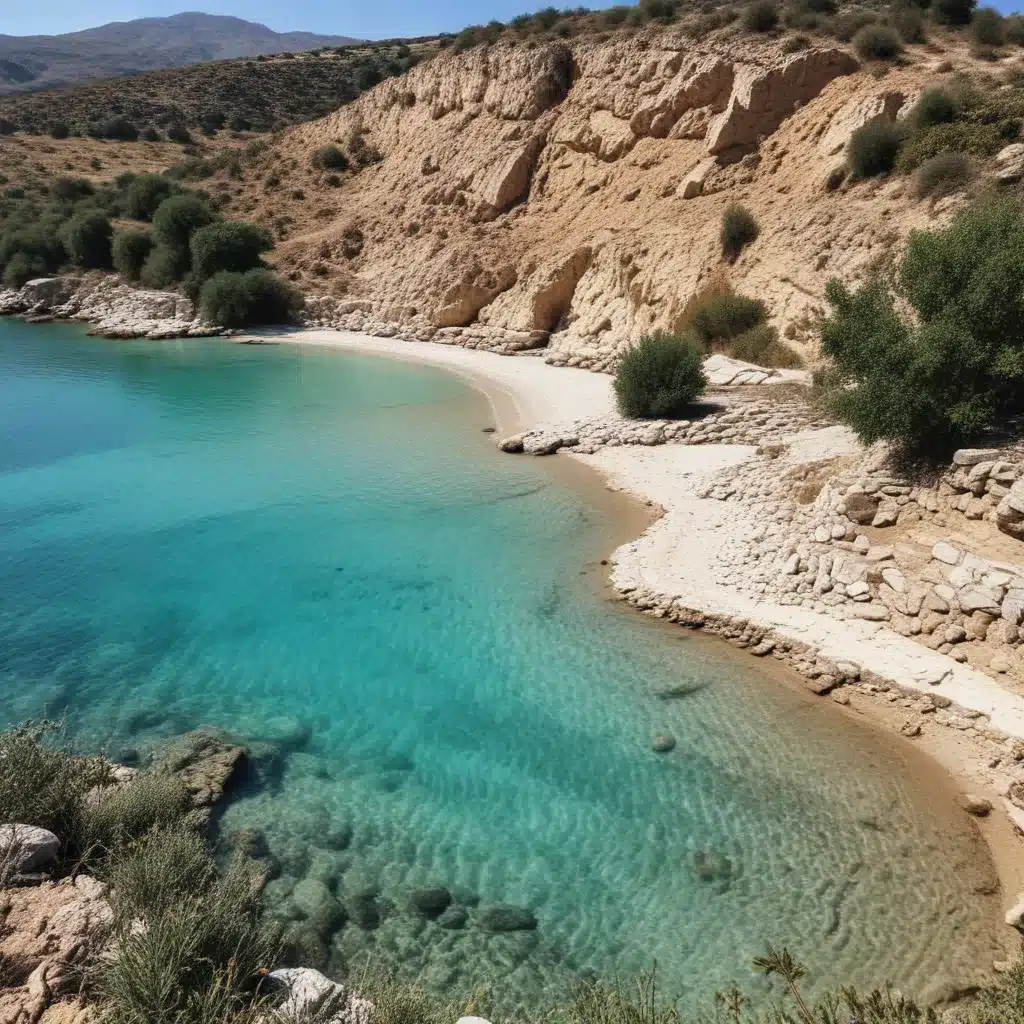
The Unfolding Water Crisis in Crete
Crete, the largest and most populous of the Greek islands, is facing a growing water crisis that threatens its environment, economy, and cultural heritage. This challenge, driven by a combination of climate change, unsustainable tourism practices, and outdated infrastructure, has reached a critical juncture, requiring immediate action from all stakeholders.
The island’s water scarcity is a complex and multifaceted issue, with the eastern regions facing the most severe challenges. The depletion of the Aposelemis Dam is a significant concern, but it is not the only indicator of Crete’s water stress. Other critical water sources, including the Faneromeni Dam and several smaller reservoirs, are also experiencing declining water levels, raising serious concerns about the long-term availability of water for basic needs, agriculture, and the tourism industry.
The island’s vulnerability to drought is not a new phenomenon. In 2018, Crete experienced severe water shortages, leading to widespread restrictions and cuts that disrupted daily life and economic activities, highlighting the urgent need for sustainable water management practices. This situation is further exacerbated by climate change, which is expected to increase the frequency and intensity of droughts in the Mediterranean region.
The Proliferation of Pools and the Unsustainable Tourism Model
One of the most visible manifestations of Crete’s water crisis is the proliferation of swimming pools. While a private pool may seem like a standard amenity for a luxury vacation, in the context of Crete’s water scarcity, it represents a stark disconnect between the demands of tourism and the island’s environmental constraints.
The construction of pools, often unregulated and exceeding permitted limits, is depleting precious water resources. The pursuit of profit and the demand for high-end accommodations have fueled a construction boom, with villas and hotels boasting multiple pools. These pools, while visually appealing, stand in stark contrast to traditional Cretan architecture and the island’s historical practices of careful water management.
They symbolize a shift towards a model of tourism that prioritizes luxury and excess over sustainability and environmental responsibility. The increased demand for water also leads to over-extraction from underground aquifers, resulting in saltwater intrusion and further compromising the quality of freshwater resources. This environmental degradation not only threatens Crete’s delicate ecosystems but also undermines its cultural heritage.
Redefining Luxury and Embracing Sustainable Practices
Addressing Crete’s water crisis requires a concerted effort from all stakeholders, including local authorities, developers, and tourists. Local authorities must strengthen regulations and enforcement to curb illegal construction and promote water conservation practices. Developers need to prioritize sustainable building practices, incorporating water-saving technologies and utilizing alternative water sources like rainwater harvesting.
Tourists also have a crucial role to play. By choosing accommodations that prioritize water conservation and by being mindful of their water usage during their stay, tourists can contribute to mitigating the crisis. Supporting local businesses committed to sustainability and respecting the cultural and environmental sensitivities of the island are equally important steps.
The concept of luxury in the context of Crete needs to be redefined. True luxury lies not in excessive consumption and private pools but in experiencing the authentic beauty and cultural heritage of this unique destination. It lies in appreciating the pristine environment, supporting local communities, and contributing to the long-term sustainability of this fragile ecosystem.
By choosing to travel responsibly and making conscious decisions, tourists can play a crucial role in protecting Crete, ensuring that its beauty and cultural heritage endure for generations to come. As the Joint Action for Water organization advocates, sustainable water management and community engagement are essential for addressing water scarcity and promoting environmental justice.
A Call for Balance and Collaboration
Crete’s water crisis is a complex issue with no easy solutions. It requires a multifaceted approach that involves sustainable tourism practices, responsible water management, and a shift in mindset towards prioritizing long-term sustainability over short-term gains.
The choices we make today will determine the future of Crete. By embracing sustainable practices and redefining our understanding of luxury, we can help ensure that this beautiful island remains a vibrant and thriving destination for generations to come.
It is time for all stakeholders, from local authorities to tourists, to come together and find a balance between the needs of the island’s environment, economy, and cultural heritage. Only through collective action and a shared commitment to sustainability can Crete’s drying paradise be restored to its former glory, ensuring a future where water scarcity is a challenge of the past.
Practical Steps for Sustainable Tourism in Crete
To contribute to the solution, here are some practical steps that tourists can take when visiting Crete:
-
Choose Accommodations Committed to Sustainability: Look for hotels, resorts, or rental properties that have implemented water-saving technologies, such as low-flow showerheads and efficient irrigation systems. Prioritize accommodations that actively promote water conservation and engage in sustainable practices.
-
Reduce Water Consumption: Be mindful of your water usage during your stay. Take shorter showers, avoid excessive bathing, and report any leaks or water waste to the property management. Consider reusing towels and linens to minimize the water-intensive laundry demands.
-
Support Local Businesses and Experiences: Seek out local, family-owned businesses, farms, and artisanal producers that are committed to sustainable practices. Engage in cultural experiences that showcase the island’s heritage and traditional water management techniques.
-
Advocate for Sustainable Tourism Policies: Engage with local authorities and tourism boards to advocate for stricter regulations on pool construction, water usage, and sustainable infrastructure development. Encourage the implementation of water-efficient technologies and the promotion of ecotourism initiatives.
-
Spread Awareness and Educate Others: Share your experiences and insights about Crete’s water crisis with your friends, family, and social networks. Encourage others to make sustainable choices when visiting the island and to support the local efforts to address this critical issue.
By taking these practical steps, tourists can become active participants in the solution, contributing to the long-term sustainability of Crete’s precious water resources and promoting a model of tourism that respects the island’s environmental and cultural heritage.

